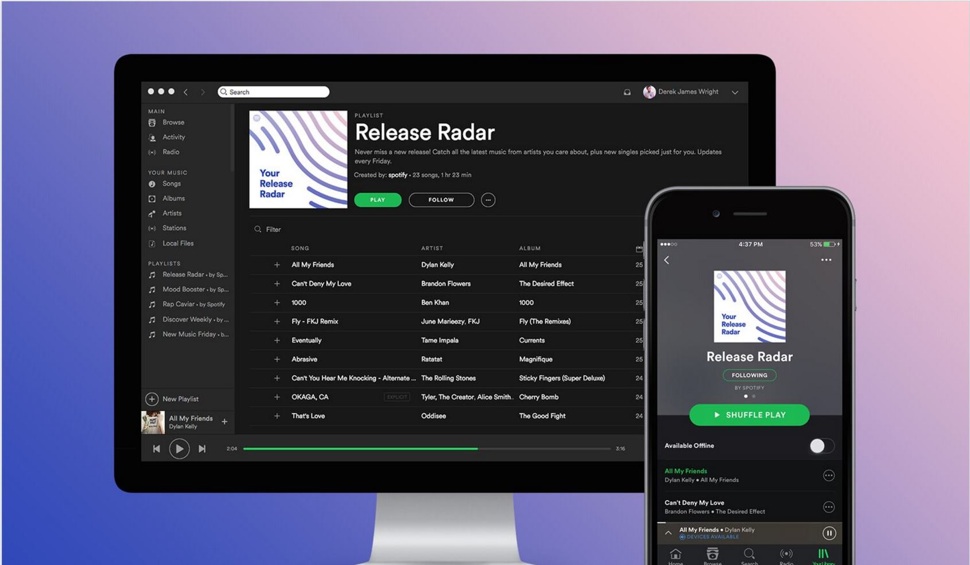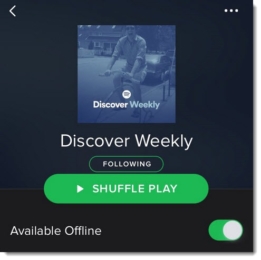Music curation services like Spotify and Pandora allow us to dive deep into our favourite musical genres, but do bespoke playlists come at the cost of having well-rounded musical tastes?

The beauty of apps like Spotify, Pandora and Beats has always been their ability to curate and predict what you’re likely to enjoy. Through a mixture of algorithms and user-defined selections, listeners have been able to find “more of what they love”. My music streaming service of choice, Pandora works through use of its “Music Genome Project” : If I up-vote Portishead’s song “Numb”, the Genome Project tells me that the song includes “synth swoops, tonal harmonies, and a trippy soundscape”. Based on that track information, Pandora would then recommend Basique’s “Little People” due to its “modal harmonies” and “synth fx”. These tags allow me to see the algorithms in action, and the more I listen to music through Pandora, the better acquainted it will become with my tastes.

This week Spotify unveiled their most recent feature “Release Radar”. Like the brand’s “Discover Weekly” function, it suggests music to listeners based on their previous listening habits, this time amassed from –you guessed it- recently released music. This feature is targeted at people who already know what they like, but haven’t got time to keep up to date with their favourite artists. The advantage of Release Radar is that it’s dynamic, allowing listeners to have a current musical snapshot of their favourite genres.
In a blog release for Spotify, product owner Matt Ogle touted that “Release Radar” would be the simplest way to help listeners “find all the newest released music that matters the most to you”. Certainly it has the ability to enrich existing musical tastes.
After the release on August 5, twitter user Howard Myones said “I don’t think anything has immediately known me better than my Spotify Release Radar.”
Ben Popper of The Verge said the same thing of Discover Weekly:
“Discovering new music remains a very powerful experience. Streaming services know this, and since most have very similar pricing and catalogs, curation has emerged as one of the most important areas of differentiation between them.”
While music curation is based largely on algorithms, there’s no doubt that it’s a personal experience when music speaks to you. “Release Radar” is able to maximise that potential, but there’s a certain paradox in this kind of music curation: you might be able to dig deep into your favourite genre, but when used alone, music curation doesn’t add much breadth to your listening experience. In other words; you might end up just reinforcing your existing preferences.
In an article for Quartz, Amy Wang suggested that the new function was an improvement on “Discover Weekly”, which was “hit and miss […] because most people listen to a selection of music in different genres.” The problem with this specificity is that once Spotify has pigeonholed you primarily as a Beyonce fan when you might equally love Susan Boyle (no judgement), you’re only going to hear “Lemonade”.
The best way to use Release Radar will be to make it part of a balanced musical diet. Boldly explore Spotify‘s other features : If you find whatever’s topping the charts to be too samey, check out other genres. Make it a social experience and listen to friends and even strangers’ playlists. You might just be six degrees of separation away from an unlikely musical gem.
Start curating your own playlists at spotify.com







